|
|
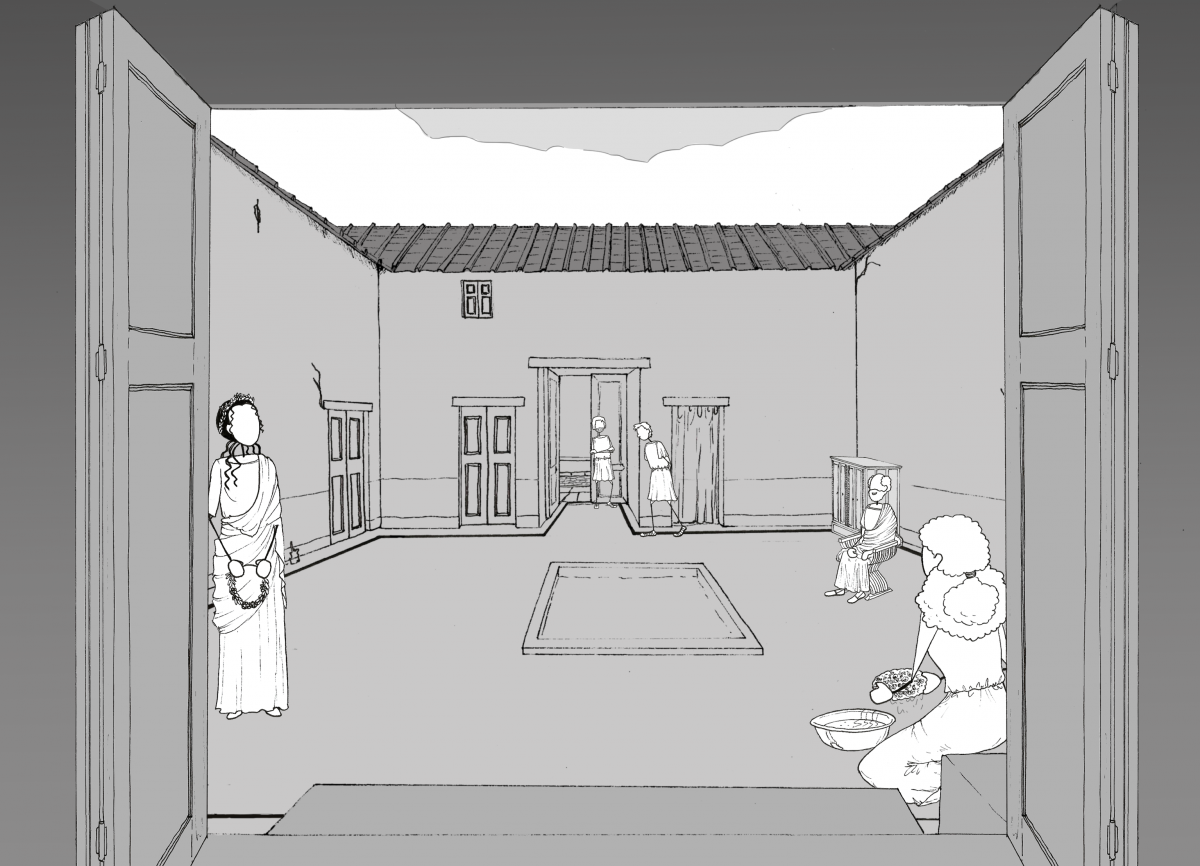
Grata kneels on the floor of the atrium by a plaster-lined basin that was once a cistern. She is waiting to wash the feet of the next man who comes through the door. Today is her master’s birthday. Old Camillus sits in a chair near the mock impluvium, waiting to greet each guest. Beside him stands a big wooden chest displaying his gifts. From her position at the end of the atrium, she can see three other people apart from her master. Straight ahead is the grumpy porter Scumnicolus whom she calls Scumni. He is a fellow Briton and his job is to guard the threshold of the house. The head slave, Amarantus, paces in the shadows of the entryway, waiting to greet each guest and announce them. And there is Camillus’s beautiful granddaughter Fabia. She stands a few paces to Grata’s left. Her duty is to place a fragrant garland on the head of each guest, after their feet have been washed, and then point the way to the inner garden. |
|
|
Grata knows that one of Amarantus’s jobs is to remember which guest gave which gift. She rises up on her knees and looks at the gifts on the big chest. The clay oil-lamp with two nozzles and the design of an olive sprig is a gift of grey-bearded banker Saturninus. She shudders at the memory of washing his feet; he had thick yellow toenails. The basket of exotic fruit from faraway Syria comes from a man called Vatia. His toes were long and thin. The gift of perfume-maker Mestrius Maximus is a little alabaster jar of Syrian nard. His feet were soft and smooth, and smelled of roses. There is even a silver cup from Successus, the richest neigh- bour. He sent his last-minute regrets along with the cup, so her master invited the newest resident of their insula, a freedman named Papilio who is a pigment-seller and painter. Grata thinks the best present is Papilio’s. It is a small portrait done in coloured wax on wood, a technique Papilio says he learned in Egypt. The portrait perfectly captures old Camillus. Earlier, when Grata removed Papilio’s sandals, she almost laughed to see his feet stained half a dozen different colours. She realised he must paint barefoot. |
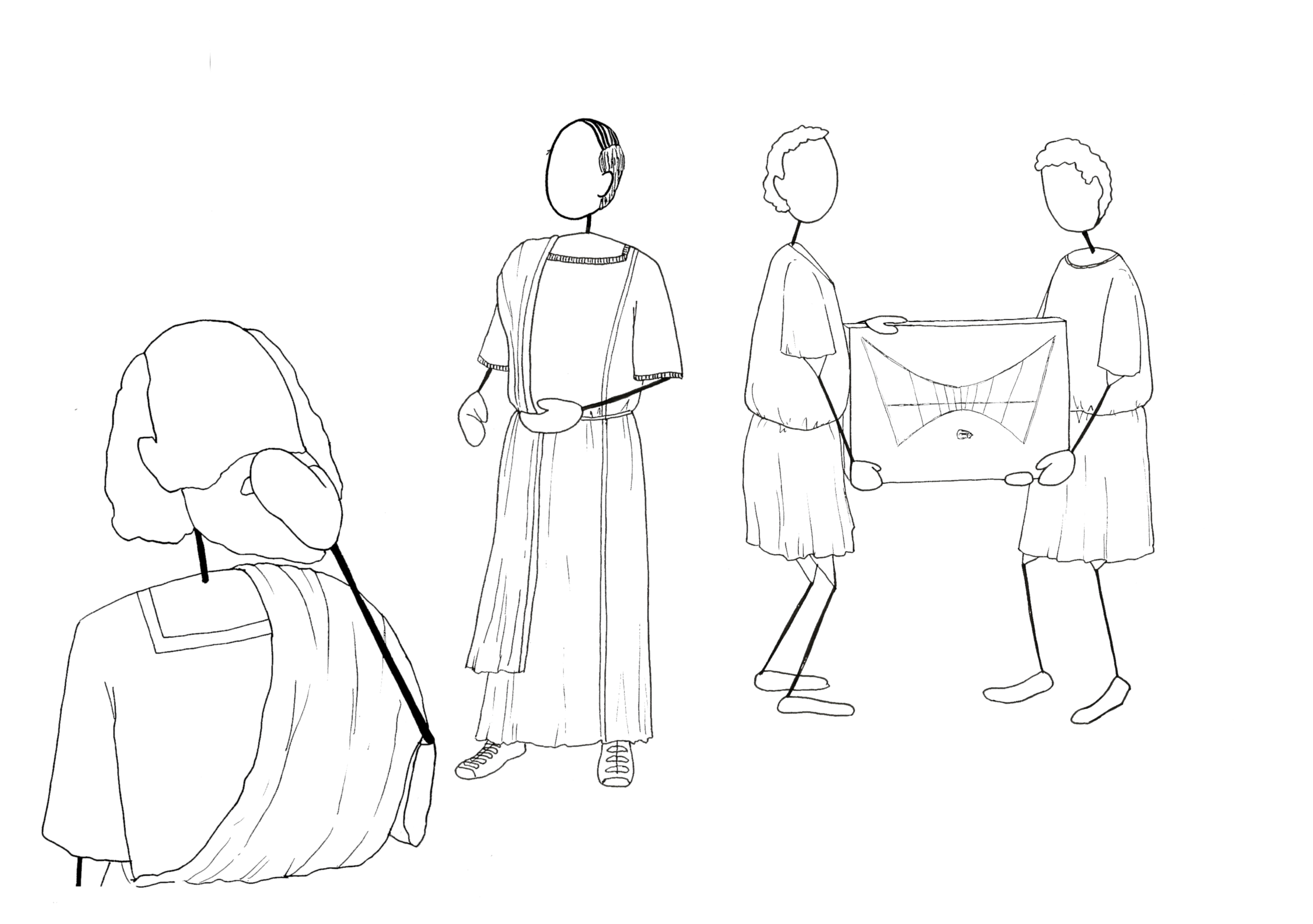 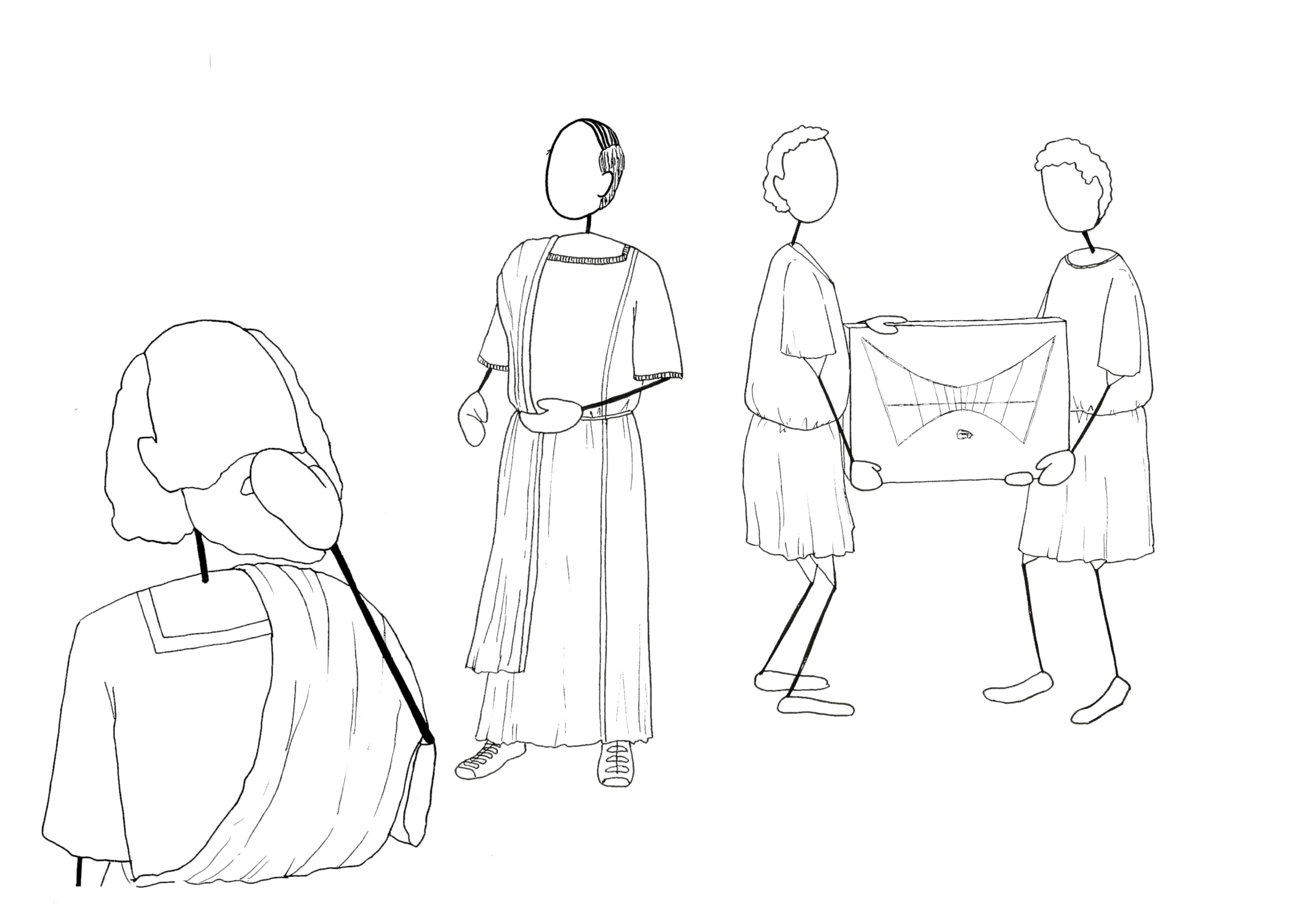 |
The last man through the door is Camillus’s freedman, Axiochus. Tall, loud and bald, he arrives with two big slaves struggling under the weight of a white chunk of marble. Camillus pushes himself up from his chair. ‘What have you brought me, Axiochus? A sundial?’ Grata sees the old man make the sign against evil behind his back, so she does, too. A few moments later, Axiochus comes over to Grata and looks down at her. ‘This girl is a lovely new addition to your home, Camillus,’ he says. ‘Is she a birthday present?’ Without waiting for an answer, he thrusts his foot towards her. He is shod in fine leather sandals with complicated laces. She undoes both shoes. First, she takes his bare right foot onto her thighs and washes it using a sea-sponge and water from the basin. Then she dries his foot with a linen towel draped over her arm. She repeats the process with his left foot. Finally, she puts a pair of dining slippers on his feet. |
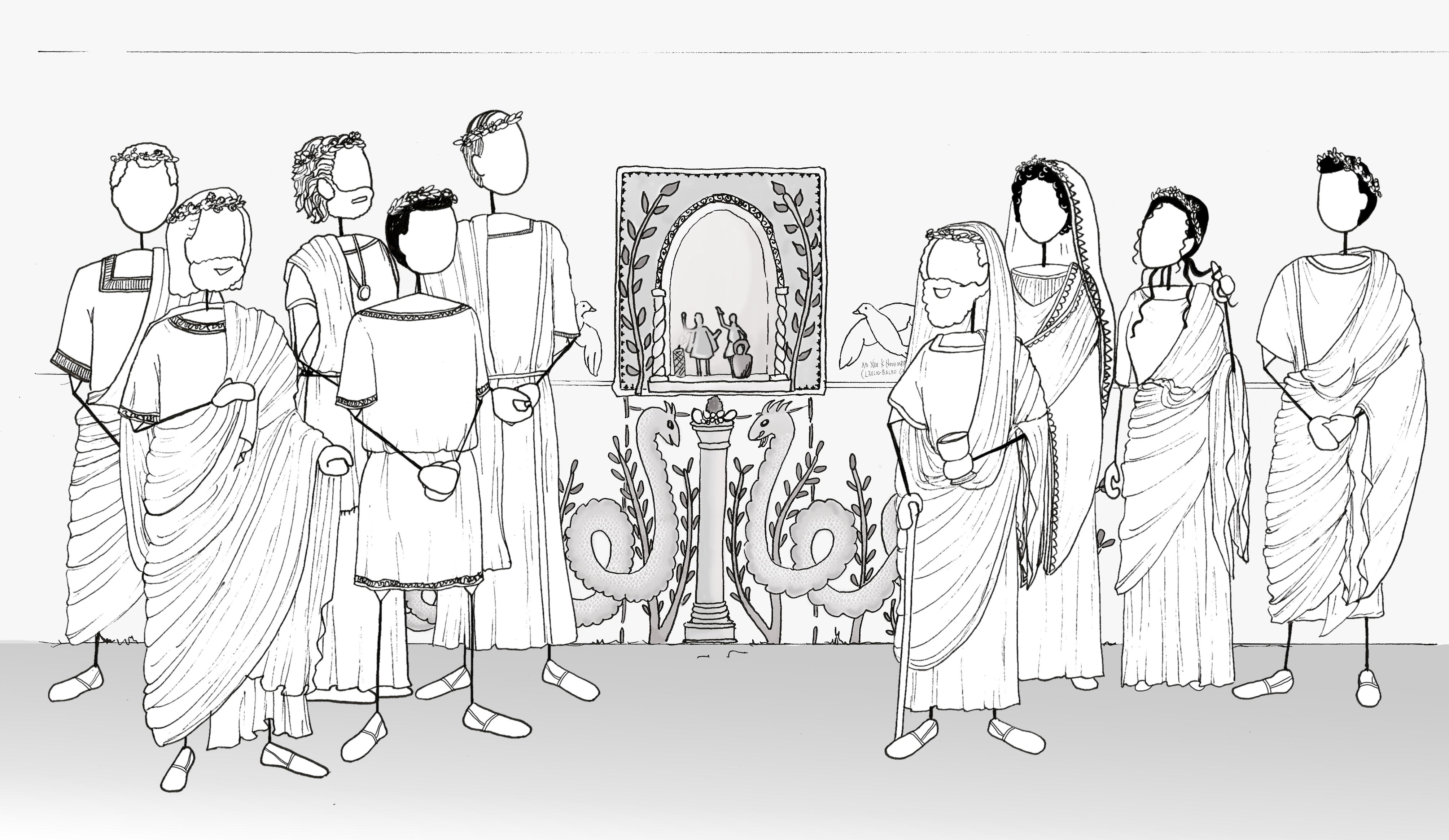 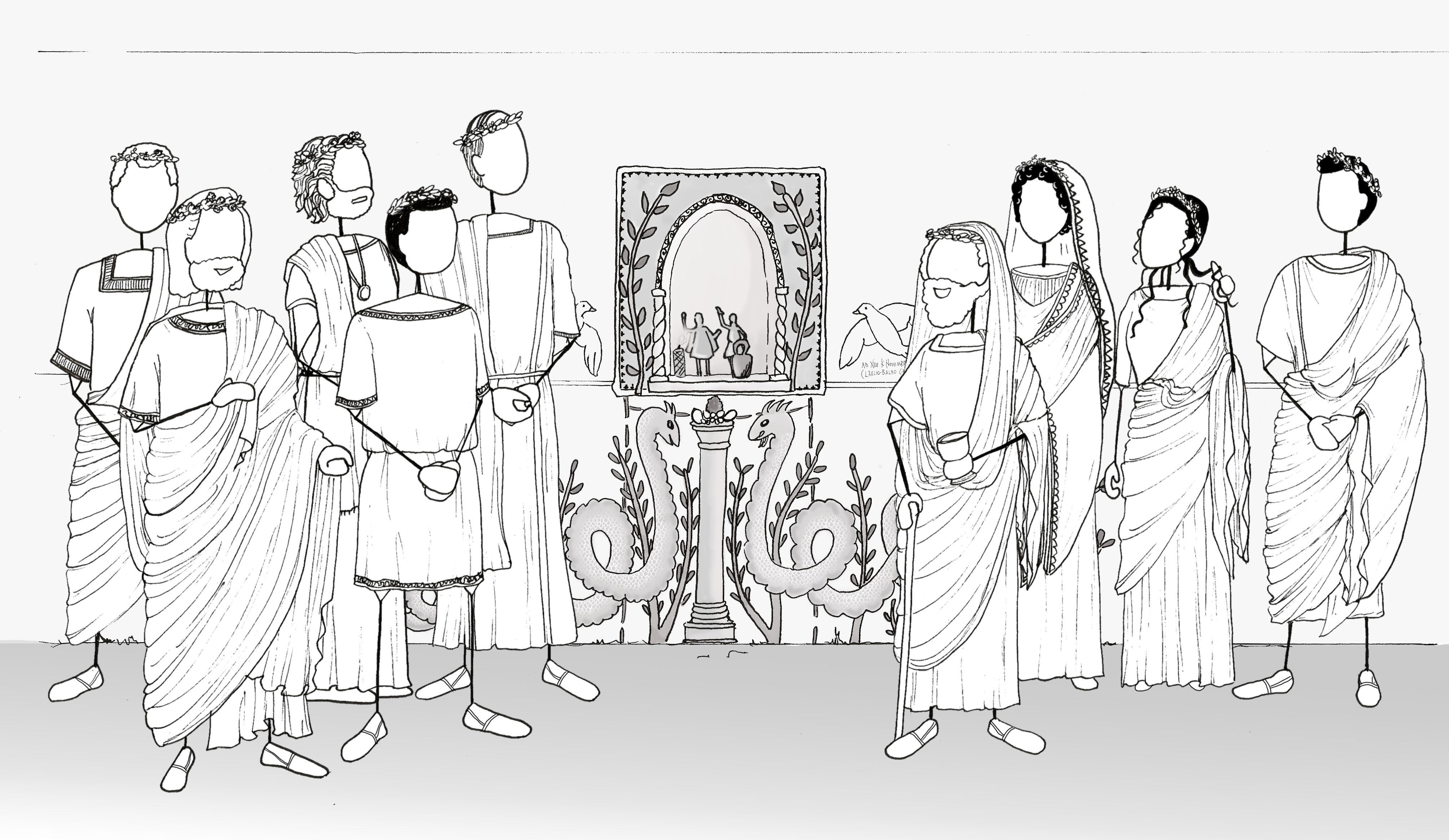 |
Axiochus was the last to arrive. Now that he is here, they all go into the cool garden, which is in shadow at this time of day. Only Scumni remains by the front door in case anyone sends a gift or message. As Grata comes into the inner garden, she sees all the guests in their garlands standing by the shrine. The shrine is an arched niche in the western wall with protective snakes painted below it. At first, she thinks the guests are looking at the snakes. Coming closer she sees they are all looking at some letters scratched into the plaster near the shrine. Pompeia is speaking: ‘… so this date was inscribed on the very day of my father’s birth, sixty-seven years ago, in the consulship of Balbus and Vetus, when Augustus was still emperor.’ Superbus pats his grandfather on the back, then takes a copper bell from the small shrine. He rings it to gain their attention and also to scare off any evil spirits. ‘Now that we are all here,’ he says, ‘let us maintain a holy silence as my grandfather makes offerings to his own Genius.’ Camillus covers his grey head with part of his toga. Everyone puts their hands on their hearts and they bow their garland- wreathed heads. Grata knows she is meant to do this, too, even though she is just a slave. For a moment all is silent. The only sound is the chirping of a bird in the walnut tree. Presently, old Camillus takes a slender beeswax candle from Superbus. He touches the flame to brown nuggets in a copper bowl on the shrine. ‘I light this incense to remind myself of the first time I saw the light of day.’ Next he accepts a cake from Fabia. ‘I offer this libum to the household gods and to my Genius, and also to Ceres who produces the grain we eat.’ Camillus places the honey-cake next to the smoking incense. Finally, he takes a cup from his daughter Pompeia and pours wine onto the ferns at the base of the shrine. ‘I offer this wine back to Pater Liber, who supplied us with the grape.’ |
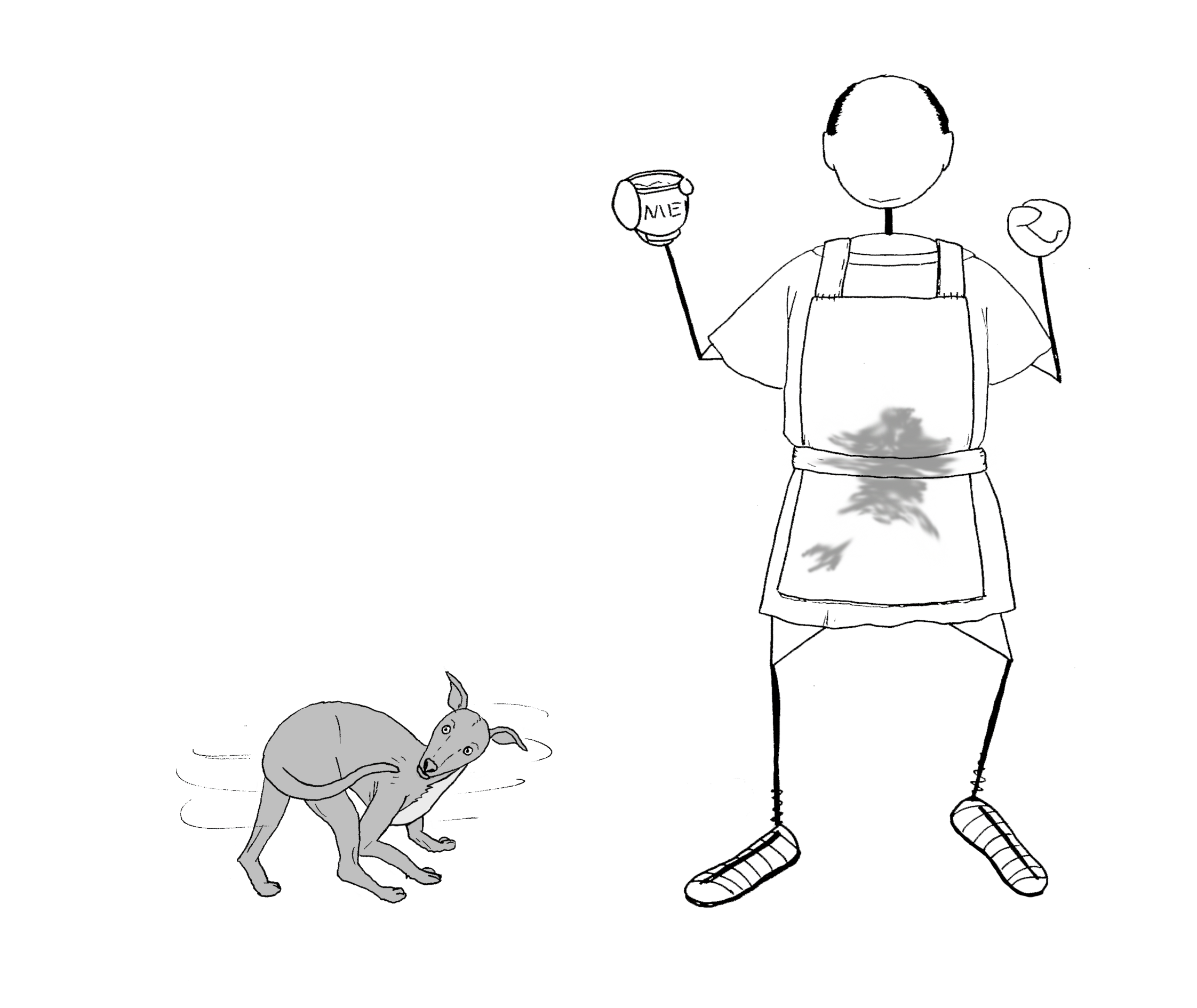 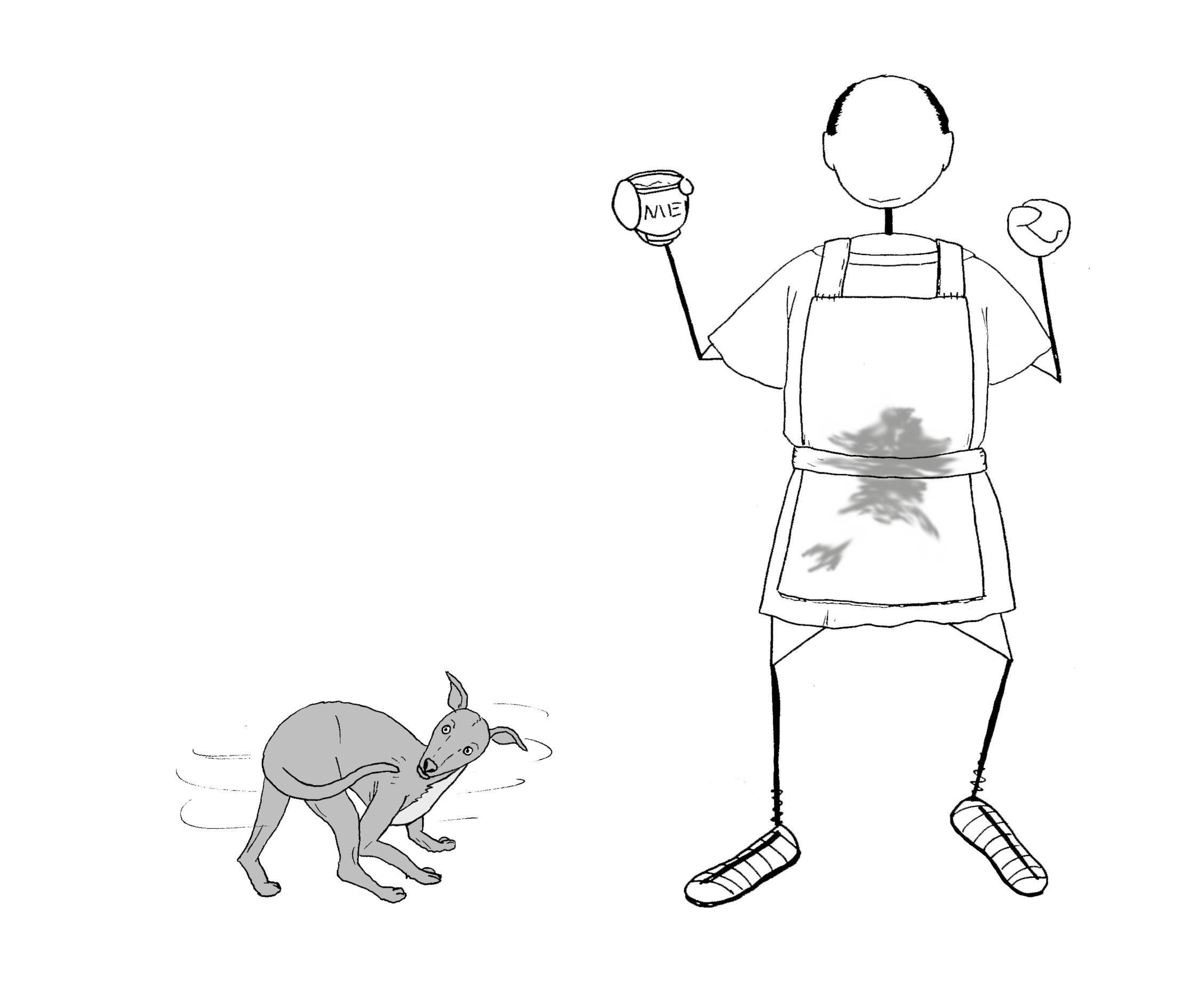 |
That is when disaster strikes. Just as the old man is raising his arms to pull the toga from his head, Fabia’s new puppy bursts out of the blackberry bush and begins to yap wildly and run in a frenzied circle. Everyone looks horrified and Fabia tries to shush the creature, in vain. A moment later Grata feels unbalanced and has to grab Amarantus’s arm. One of the little wooden statues on the altar must have been unbalanced, too, for it topples forward onto its face. Everyone makes the sign against evil, including Grata. She knows it is a bad omen. Then comes the worst thing yet. The red-faced cook runs bellowing into the garden, barefoot and wearing his bloodstained apron. ‘Thief!’ he cries at the top of his lungs. ‘Someone has eaten the honey I set aside for dessert! It was Severa’s special honey from thyme-fed bees.’ Grata gasps. Earlier she spotted a pot of honey on the shelf and dipped some bread in it. It was delicious and she ended up using half a loaf to devour it all. Amarantus hears her sharp intake of breath and turns to look at her. When she sees his face, she knows he knows. ‘I vow by all the gods,’ Coquus is still shouting, ‘I will beat the thief to a pulp!’ For a moment Grata thinks she might faint. Then Amarantus slowly raises his hand. ‘It was me,’ he says. ‘I ate the honey.’ Grata claps her hands over her mouth. ‘You, Amarantus?’ Pompeia frowns. ‘That’s not like you.’ ‘I’m sorry. I couldn’t resist.’ Amarantus hangs his head. ‘It’s a good thing you stole the honey,’ says Camillus in a shaky voice, ‘because you have shown your true character. I was going to grant you your freedom today.’ From the folds of his toga the old man produces a wooden tablet with three leaves. ‘I was going to take you before the magistrate and have it all done officially. But now ...’ He throws the tablet onto the ground. ‘I swear that you will never be free. At least not in my lifetime.’ |

